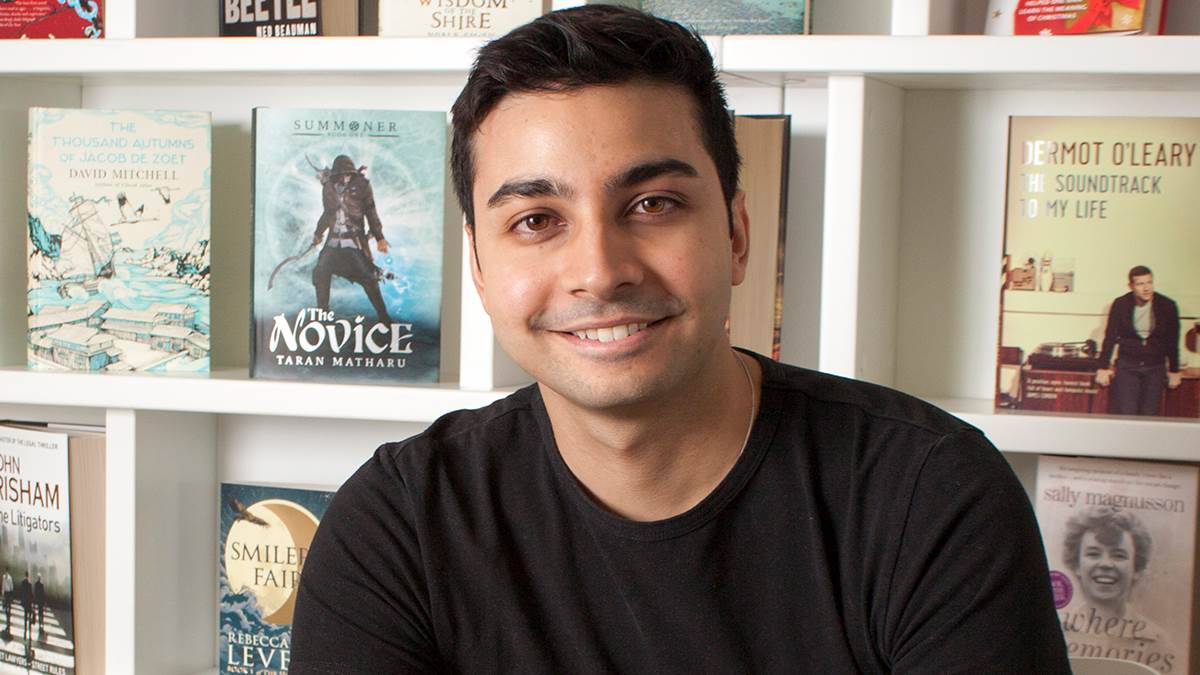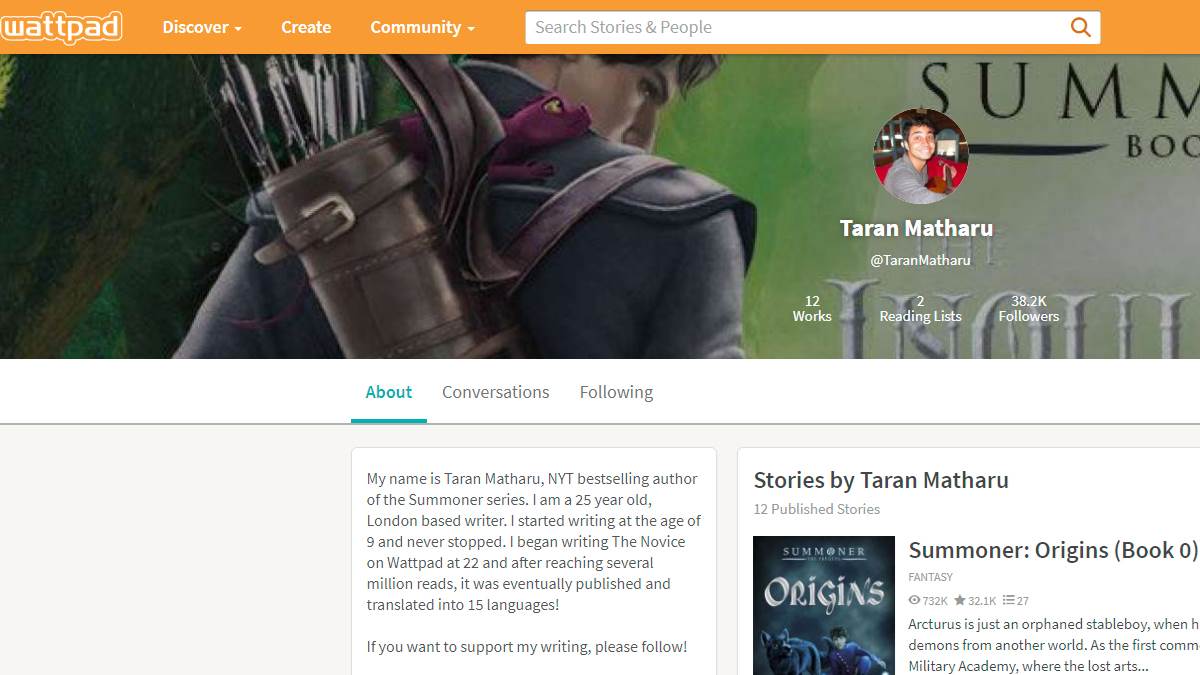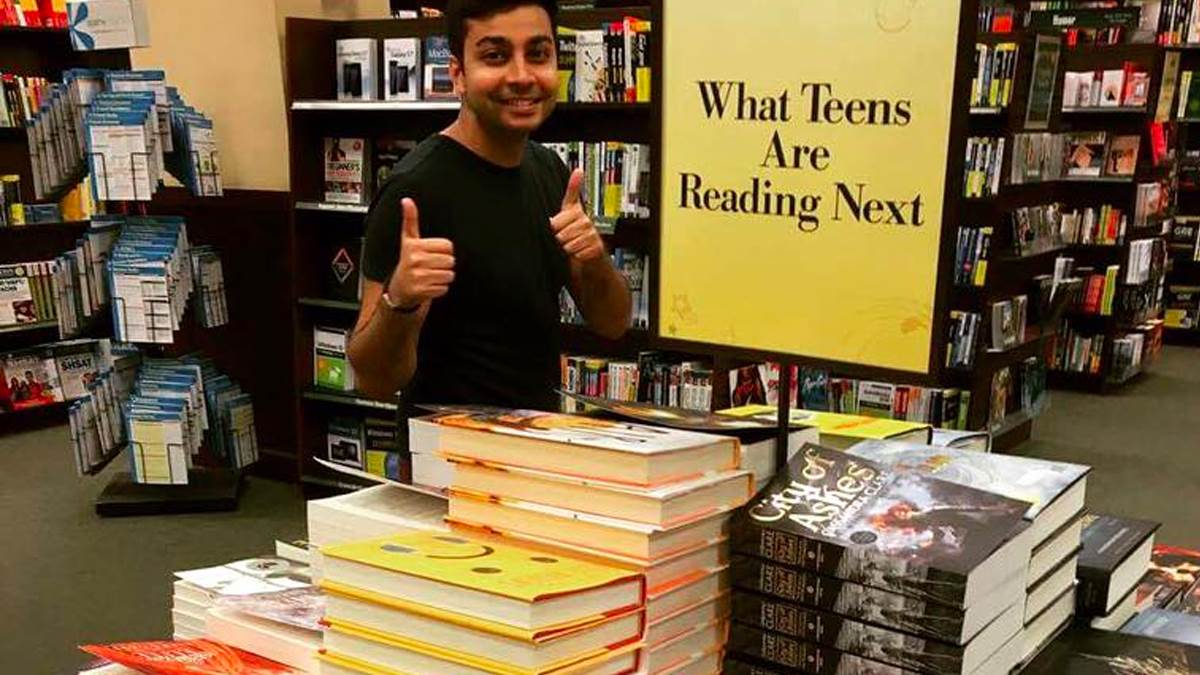Writing on Wattpad versus publishing “real” books
Published on: 09 October 2017 Author: Taran Matharu
The ridiculously imaginative Taran Matharu, author of the fantastical Summoner series, became our sixteenth Writer in Residence back in 2017. In this blog Taran talks about what it's like to go from internet sensation to bestselling author – and how they're both great but different ways to get your story out there.

I began writing on Wattpad, an app, website and social network sometimes described as ‘the YouTube of books’, in November of 2013, at the age of 22. Updating my profile with a chapter each day, my young adult novel, The Novice, went viral, reaching over 3 million reads in less than six months.
After being featured by NBC News, I received unsolicited interest from publishers and soon after, offers of representation from six agents. The series was eventually sold to Hachette Children’s Books, and all three books in The Summoner series went on to become New York Times bestsellers. The series has since been translated into 15 languages.
So, I’ve been on both sides of the digital and traditional publishing fence, and thought it would be interesting to offer up some thoughts on the comparisons between the two.
Feedback and reviews
Wattpad is a social network where writers that post their stories online and get instant feedback and encouragement from readers. It’s an overwhelmingly positive community; comments on your writing vary from a simple 'I loved it!' to a chapter-by-chapter analysis of the writing and themes. This real-time feedback allows a writer to learn, adapt and improve as they write in a very specific way, while also changing the writing experience from a solitary one to a social one.
For traditional books, reviews are the normal form of feedback, unless you count fanmail, which you get on Wattpad too. Reviews occur after the book is finished. However, reviewers put a lot of thought and effort into their reviews, as well as promoting and engaging with writers whose work they enjoy.
Companionship and engagement
On Wattpad, communication is sometimes limited for an author when communicating with their readers. You can message your followers with a status update, but that only reaches a fraction of users. That being said, private messages can be sent to anyone and allow greater depth of conversation, and there are forums to meet like-minded people. Writers can also respond to comments made directly on their stories and even hold a conversation there. You can even include photos and video!

In traditional publishing, most writers use Twitter to keep in touch with bloggers, reviewers, fans and the publishing industry, at least on a social basis. The scope for genuine conversation and meeting people is limited, and interactions are very public and can be hard to track. At the same time, you can send out a tweet and everyone online might see it, and the content is far more varied.
Recognition and respect
Wattpad success can be measured by the very public stats listed beside your book that show the number of times your book has been read. As an author, the feedback and comments might be all that you need, as well as the simple knowledge that thousands, perhaps even millions, of people around the world are enjoying your work. Yet, the sense of achievement is limited and the financial rewards are non-existent: important, when you need to earn a living.
I had millions of reads when a traditional publisher picked up my book, The Novice. That was, and is, an overwhelming accomplishment for me. The benefit of being paid was that my dream wasn’t a pastime anymore, but something I could turn into a career. Being paid to write meant that I could afford to focus on my writing.
Being traditionally published also meant that I’d received acknowledgement by "the professionals". I wasn’t just popular, or lucky, or the best that was available on Wattpad. To put it bluntly, the people who know what they were talking about said my book was decent.
There was also the irrefutable fact that my book was going to be in shops. And suddenly, it wasn’t just me anymore: I had a team behind me; people who loved my book as much as I did.
Finally, there was the public perception of me as a writer. When someone asks me what I do and I say "author", I always feel like they’re trying to work out if I’m a "real one" or simply "playing at it". Are they thinking I'm unemployed and perpetually working on a book that will never see the light of day?
And in the literary world, if you say you write on Wattpad, many will not consider you a "real" author, no matter how many people you’ve reached with your story – which, incidentally, is often more than you can reach via traditional publishing.
I suppose what I’m trying to say here is that being a writer can manifest in different ways, all with pros and cons attached. Fortunately for me, I got the best of both worlds. And what I can say with absolute certainty is that although the two are very different journeys, both are very much worth making.
Topics: Writer in Residence, Writing, Features






